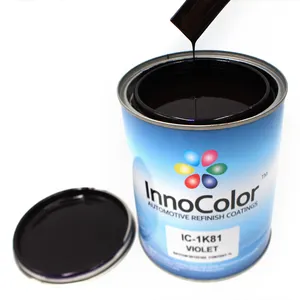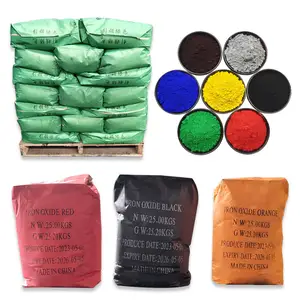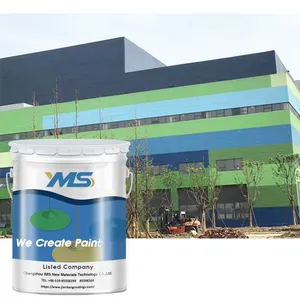

Automotive Paint Manufacturer InnoColor 2k Topcoat Car Paint Auto Metallic Coatings Automotive Paint Manufacturer


Matte Industrial Plastic Colorant Pigment Indigo Powder Iron Oxide Colour Pigments For Water Paints Lime Wash Art Wall Paint
























Rubber paint for concrete is a specialized coating designed to protect and enhance concrete surfaces. This versatile product category encompasses a variety of formulations tailored to different applications, from garage floor rubber coating to rubber paint for concrete walls. Its unique properties make it an ideal choice for areas requiring durability and elasticity.
The range of rubberized coatings for concrete is diverse, with each type serving a specific purpose. For instance, rubberized paint for basketball court surfaces is crafted to withstand heavy foot traffic and provide excellent traction. Similarly, rubber paint for concrete floors is often used in warehouses and industrial settings where floors must resist abrasions and chemical spills. In residential settings, rubber coating for concrete patio areas is popular for its ease of maintenance and aesthetic appeal.
Rubber paint for concrete is renowned for its robust features. It is typically non-toxic, making it safe for both indoor and outdoor environments. The elasticity of liquid rubber paint for concrete ensures it can expand and contract with temperature changes without cracking. Materials commonly found in these coatings include silicone rubber, known for its resistance to weathering and temperature extremes. This makes products like waterproof rubber paint for concrete and rubber paint for basement walls highly sought after for their protective qualities.
One of the primary advantages of using rubber paint on concrete surfaces is its durability. Unlike traditional paint, rubber floor paint for concrete does not chip or wear easily. This is particularly beneficial for high-traffic areas such as rubber paint for concrete garage floors. Additionally, its waterproof nature makes it an excellent choice for surfaces that are frequently exposed to moisture, such as concrete patio rubber paint. The ease of application is another benefit, with products like flex seal paint for basement floor offering simple, user-friendly solutions.
When selecting a rubberized coating for concrete, environmental and safety considerations are paramount. Most rubber paints are formulated to be eco-friendly and safe for users, with low volatile organic compound (VOC) emissions. This ensures that applying rubber paint for cement does not compromise air quality or pose health risks to applicators.
Selecting the correct type of rubber paint for a concrete project requires understanding the specific needs of the surface. Factors such as exposure to elements, foot traffic, and the presence of chemicals should guide the choice. Whether it's for a residential project or a commercial space, the right rubberized paint can significantly extend the life and appearance of concrete surfaces.